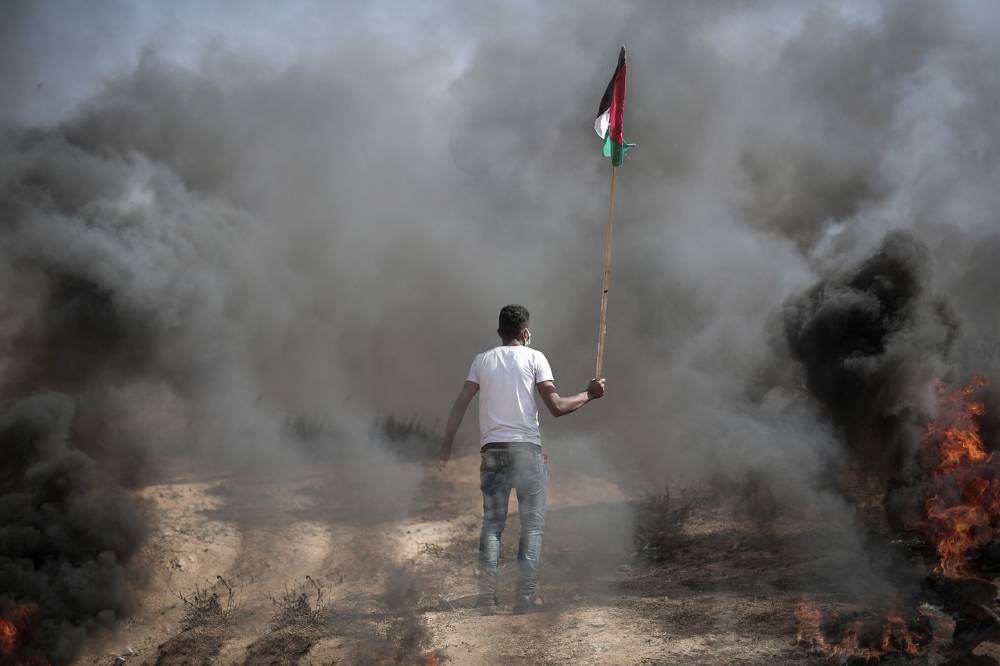Politically, Israel's ruling coalition is facing unprecedented criticism on multiple fronts...
It remains challenging to draw clear conclusions about the strategic implications of the unexpected and unprecedented attack launched by Hamas and other Palestinian resistance factions against Israel from the Gaza Strip. The operation is still ongoing, and predicting its outcome is complex, especially after Israeli Prime Minister Benjamin Netanyahu declared a state of war for the first time since the October 1973 war.
Hamas's spectacular assault has been likened to the historic event where the Egyptian and Syrian armies managed to breach Israeli defenses in the Sinai Peninsula and the Golan Heights. Despite the Israeli army's inability to repel the joint assaults, the war eventually led to Egypt's withdrawal from the Arab-Israeli armed conflict, at least for now.
It has also been compared to the events of September 11, 2001, and the possible strategic repercussions for the entire Middle East.
However, in reality, this operation more closely resembles the early guerrilla operations launched by Ho Chi Minh from a small territory in North Vietnam. These operations eventually led to the establishment of the North Vietnam state and the liberation of the entire Vietnamese territory, following the defeat of French occupation, particularly at the Battle of Dien Bien Phu, and later the American occupation in 1975 with the liberation of Saigon.
This also recalls the beginning of the Algerian war of liberation, which culminated in Algeria's liberation after 132 years of French colonization. This struggle established the Algerian National Liberation Front as a symbol of resistance for oppressed people worldwide, overshadowing the Algerian National Liberation Front, despite its rich legacy, which was slow to adopt a resistance strategy against the occupier, thus losing its leading position in the Algerian struggle.
Regardless of the battle's outcome, the Hamas movement has clearly strengthened its position and influence within the Palestinian political scene. By pursuing its political agenda, it is on track to become an essential player both regionally and internationally. This rise might also extend beyond the Gaza Strip, impacting the West Bank, refugee camps, and the Palestinian diaspora, at the expense of the Palestinian Authority, the Palestine Liberation Organization (PLO), and the Fatah movement, all of which are losing momentum. As such, Hamas is poised to become the primary actor in Palestinian politics, enhancing its influence beyond what the PLO achieved in the 1970s.
On the other hand, Israel faces several challenges and limitations in its response to the resistance factions in Gaza. These constraints include the presence of dozens of Israeli civilians held in the Gaza Strip, the risk of Hezbollah's military intervention from the north, the possibility of a new intifada in the West Bank, and the complexities of assassinating leaders in Gaza, which are currently challenging to execute. Despite this, Israel must take measures to restore its deterrence and bolster its "victory" image, even if costly.
Politically, Israel's ruling coalition is facing unprecedented criticism on multiple fronts. Firstly, the government's inability to respond promptly to calls from the families of the missing and kidnapped Israelis has garnered criticism. Additionally, the coalition's failure, which adopted an extreme right-wing stance, to effectively manage the situation in terms of security, intelligence, and on the ground, especially during the first two days, is heavily criticized. Moreover, the Palestinian attack highlights not only the Israeli government's lack of preparedness but also its "incompetence" as per Israeli critics. Some believe that extreme actions by government ministers, such as frequent intrusions into the Al-Aqsa Mosque compound, Judaization of the West Bank, closing political horizons, and mistreatment of Palestinian prisoners, might be among the primary reasons contributing to Hamas's attack.
Thus, the possibility of the current right-wing government collapsing exists, although its likelihood seems low based on current data, within a consensus in Israel about the need to exact a heavy toll on Hamas.
Therefore, there's a strong possibility of forming a national unity government encompassing all political forces. This scenario might signify a temporary overcoming of political divisions, in the face of shared challenges faced by both the ruling coalition and the opposition. It might also help "whitewash" the image of the perceived extremist coalition, not only in the eyes of the opposing Israeli public but also internationally.
However, it appears that some central forces, notably Yair Lapid, set political conditions to join an emergency government, such as the resignation of ministers Itamar Ben Gvir and Bezalel Smotrich. This represents a political maneuver, whose significance should wane as chaos persists within Israel.
The third likely scenario is the formation of an emergency government ending after the war, including former army generals like Benny Gantz and Moshe Ya'alon. This would allow Netanyahu to weaken the opposition pole by incorporating them into the current government, so they later share the burden of the war and its still uncertain consequences. On the flip side, in this scenario, the opposition, especially Gantz, might see it as an opportunity to redefine its political stance and achieve significant milestones, particularly anticipating the end of Netanyahu's reign due to the current crisis shaking Israeli society.
Please post your comments on:
[email protected]
 Politics
Politics








